




























Airlines, Airports and Airliners News 30 Aug to 5 Sept 2021

NEW KULULA.COM APP MAKES IT SIMPLER TO FLY

As kulula.com takes to the skies again in September, the airline has unveiled its new mobile app, which provides travellers the quickest, easiest way to book a flight with South Africa's first low-cost airline.
"On average, it used to take our customers 23 minutes to book a flight. Our new kulula.com app saves you time, reducing this to 10 minutes" says Avsharn Bachoo, CIO at Comair Limited. "The app provides you with every piece of information that matters and has a simple, attractive interface to shop, book and check in for your flight."
"We have been listening to our customers' feedback over the past year and we're pleased to launch this app at a time when we can really help make air travel easier and more enjoyable for our customers", adds Bachoo.
Comair Limited has used the past year-and-a-half of lockdowns to transform its IT infrastructure, leapfrogging from legacy systems to state-of-the-art technology.
"The new kulula.com app has been built in the same way as Google Maps or Gmail", says Bachoo. "In other words, the microservices sit on containers, able to scale up or down immediately, such as when there's a rush on tickets for holiday specials. There are no more 'waiting rooms' or frozen pages."
"We've created a Cloud-centric rather than a standalone app", explains Bachoo. "Using Flutter and Firebase rather than Xamarin is a gamechanger due to cost and ease of use. The end product may look the same, but there's a big difference in the back-end." Long-term business benefits include cheaper maintenance and the ability to adapt and respond faster. The modular design of the app means that the airline group can keep plugging in other services whenever required.
In addition, their new API store brings multiple advantages to Comair Limited, allowing its business to integrate with multiple partners in the travel sector, including hotels and car-hire companies. "APIs allow businesses to easily use products and services from other organisations that would take too long to build themselves, lowering costs, and generating new revenue streams and innovations," says Bachoo.
Over the past year, Comair Limited has partnered with Teraflow, a local data engineering and artificial intelligence firm, to modernise and re-design the group's technology. "It has been exciting to work with Comair Limited and see its commitment to innovation" says Brett St Claire, CEO at Teraflow. "Being a responsible and proactive business meant taking the opportunity to innovate during the pandemic and emerge with a competitive advantage" continues St Clair.

The International Air Transport Association (IATA) commended the European Commission for its leadership and speed in delivering the EU Digital COVID Certificate (DCC) and urged states to make it their global standard for digital vaccine certificates.
"The DCC was delivered in record time to help facilitate the reopening of EU states to travel. In the absence of a single global standard for digital vaccine certificates, it should serve as a blueprint for other nations looking to implement digital vaccination certificates to help facilitate travel and its associated economic benefits," said Conrad Clifford, IATA's Deputy Director General.
The EU DCC meets several key criteria which have been identified as important if a digital vaccination certificate is to be effective:
Format: the DCC has the flexibility to be used in both paper and digital format QR code: The DCC QR code can be included in both digital and paper format. It contains essential information as well as a digital signature to make sure the certificate is authentic.
Verification and authentication: The European Commission has built a gateway through which the encrypted data used to sign DCCs and required to authenticate certificate signatures can be distributed across the EU. The gateway can be also used to distribute encrypted data of non-EU certificate issuers other issuers. The EU has also developed a specification for machine readable Validation Rules for cross-country travel.
The EU DCC is implemented in the 27 EU Member states and a number of reciprocal agreements have been agreed with other states' own vaccination certificates, including Switzerland, Turkey and Ukraine. In the absence of a single global standard for digital vaccination certificates, up to 60 other countries are looking to use the DCC specification for their own certification. The DCC is an excellent model as it is consistent with the latest World Health Organization Guidance and is fully supported by IATA Travel Pass. Another benefit of the DCC is that it enables holders to access non-aviation sites in Europe that require proof of vaccination, such as museums, sporting events and concerts.
IATA wishes to offer its collaboration to EU Commission and any other interested state to further integrate the DCC into airline processes for a secure and seamless passenger experience, such as support for selective disclosure of personal data.
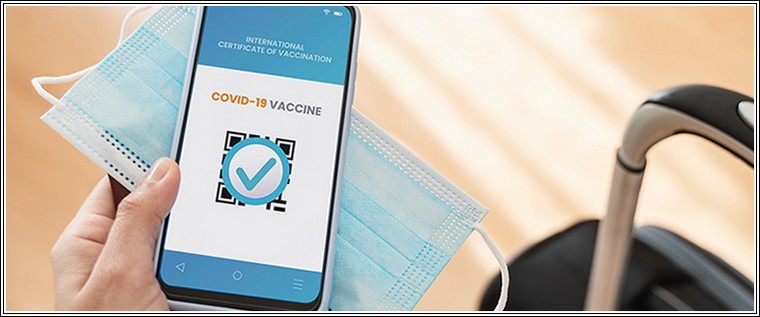
The new ICAO Visible Digital Seal (VDS), originally adopted by countries for travel document verification, is now gaining expanded international acceptance as an affordable and efficient solution to this critical global challenge.
"This is an urgent priority for the international community and a number of countries are now actively engaging with ICAO on suitable formats for their national health proofs," confirmed ICAO Secretary General Mr. Juan Carlos Salazar.
"Considering the core security and information aspects involved, the new VDS is an important part of our recommendations for facilitating travel under the current circumstances," he noted, "and we're also cooperating closely with industry and others, now issuing similar 2D barcode systems, to ensure a seamless global system is the end result."
ICAO and the European Union are currently working to ensure compatibility between the VDS and European Digital COVID Certificates, with specific international implementation guidelines expected shortly.
Other regions and countries are conducting their own assessments as they continue to leverage the positive health outcomes being realized through vaccination.
"Global consensus on secure and conveniently-implementable solutions, like the ICAO VDS, greatly benefits the security and efficiency of international aviation. It also benefits the many millions of people all over the world who depend directly on-air connectivity for their basic economic survival," Mr. Salazar explained.
ICAO VDS Guidelines and specifications are publicly available to support their efficient global deployment.
The use of certificates attesting to vaccination status and test outcomes, as part of a state's overall COVID-19 risk mitigation strategy, is outlined in the detailed aviation response and recovery guidelines issue by the ICAO Council's Aviation Recovery Task Force (CART).
EMIRATES TO RECEIVE FINAL A380 IN NOVEMBER

All three new A380s to be delivered will be fitted out with Emirates' much lauded Premium Economy cabin as well as its latest A380 cabin interiors and signature features including private suites and Shower Spas in First Class, the popular Onboard Lounge, fully flat seats in Business Class and the industry's largest seatback screens for customers in all cabins to enjoy the airline's extensive selection of entertainment content on ice.
These deliveries will bring Emirates' total fleet of A380s to 118 units in November, including six aircraft equipped with Premium Economy seats in a 4-class configuration.
Sir Tim Clark, President Emirates Airline said: "We've come to an agreement with Airbus to bring forward the delivery of our remaining A380 orders and have secured financing for these units. These new aircraft will also add more highly sought-after Premium Economy seats into our inventory, as we prepare to fully launch this cabin product in the coming months."
He added: "Emirates will continue to be the largest operator of this spacious and modern aircraft for the next two decades and we're committed to ensuring that the Emirates A380 experience remains a customer favourite with ongoing investments to enhance our product and services."
As travel restrictions ease with the global roll-out of COVID-19 vaccines, come October, Emirates will have reinstated its A380 operations on over a dozen popular routes between Dubai and: Amman, Cairo, Dusseldorf, Frankfurt, Guangzhou, London Heathrow, Los Angeles, Manchester, Mauritius, Moscow, Munich, New York JFK, Paris, Toronto, Vienna, Washington DC and Zurich.
Emirates' 4-class A380s are currently operating on its London Heathrow and Paris Charles De Gaulle routes. The comfortable and luxurious cream leather-covered Emirates Premium Economy seats with generous leg room, are currently offered as spot upgrades for valued customers on a discretionary basis. All other signature Emirates A380 First, Business and Economy cabins are available for reservation on emirates.com or via travel agents.
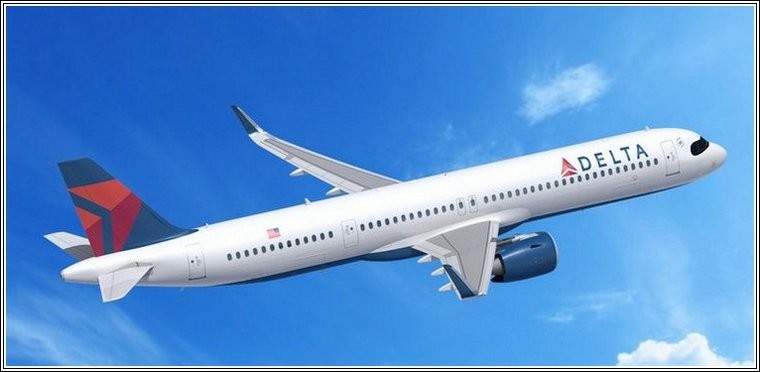
"Adding these aircraft strengthens Delta's commitment to replacing older fleets with more sustainable, efficient jets, and offering the best customer experience in the industry," said Mahendra Nair, Delta's Senior Vice President - Fleet and TechOps Supply Chain. "Delta appreciates the extensive partnership with the Airbus team in support of our strategic growth plans and we look forward to continuing to work together throughout the recovery and beyond."
"As the industry looks to emerge from the pandemic, Delta is showing responsible leadership and casting a strong vote of confidence now in the A321neo," noted Christian Scherer, Chief Commercial Officer and Head of Airbus International. "With orders for 30 more of an aircraft that is in very high demand around the globe, our partners at Delta are underscoring the strategic role they see for the A321neo with its outstanding environmental performance for the airline's renowned customer service and reliability for years into the future."
Delta's A321neos will be powered by next-generation Pratt & Whitney PW1100G turbofan engines that bring significant efficiency gains over Delta's current, already-efficient A321 aircraft. Equipped with total seating for 194 customers with 20 in First Class, 42 in Delta Comfort+ and 132 in the Main Cabin, Delta's A321neos will be deployed primarily across the airline's extensive domestic network, complementing Delta's current A321 fleet of more than 120 aircraft. The airline is slated to receive the first of its 155 A321neo aircraft early next year.
Many of Delta's A321neos will be delivered from the Airbus U.S. Manufacturing Facility in Mobile, Alabama. The airline has taken delivery of 87 U.S.-manufactured Airbus aircraft since 2016.
As of the end of July, Delta's fleet of Airbus aircraft numbered 358, including 50 A220 aircraft, 240 A320 Family members, 53 A330 widebodies, and 15 A350 XWB aircraft.
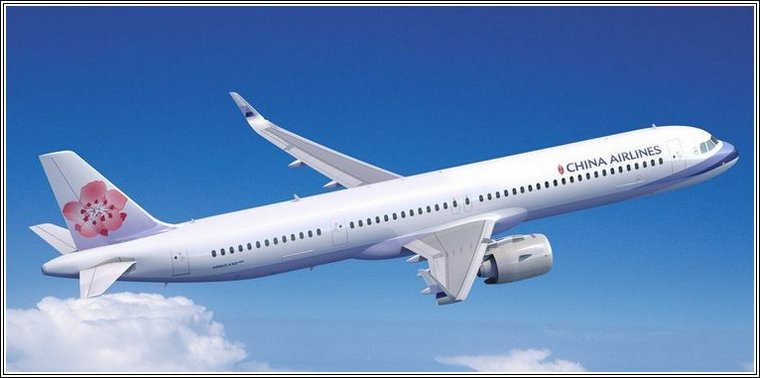
The IATA Travel Pass will initially be trialled on flights returning to Taiwan from 8 destinations (Los Angeles, Ontario, San Francisco, New York, Vancouver (Canada), Frankfurt (Germany), London (UK) and Singapore. This service will expedite the check-in process, reduce unnecessary human contact and provide passengers with greater peace of mind during their flight.
China Airlines has partnered with IATA to trial the Travel Pass on flights to Taiwan from the US, Canada, Germany, UK and Singapore. Information about the trial can be found in the "Novel Coronavirus Service Information" section of the China Airlines website. To participate, download the Travel Pass app from the App Store or Google Play. First, complete the online registration process. Then, go to a designated hospital to take the PCR test. The hospital will update the IATA Travel Pass with an electronic copy of the PCR test report that passengers can present at check-in. Their health information can then be readily checked by China Airlines ground staff, minimizing the amount of contact and expediting the entire check-in process.
Contact-free services will become a key trend for future of air travel. China Airlines partnered with the Affinidi digital health verification platform from April this year to trial digital health verification and simplify the check-in process on flights returning to Taiwan from Singapore and Kuala Lumpur. The new partnership with IATA will expand digital verification services to destinations in Europe and North America. After this IATA trial run, the results will be assessed to see if the program can be expanded to cover more China Airlines flights. Concurrently, China Airlines is also actively seeking out other international digital verification platforms to do more testing, with the goal of further optimizing its own digital pandemic services. Negotiations are also under way with system operators to digitize health declarations and reduce physical contact points. To provide travellers with a safe and convenient travel experience, China Airlines is also working with the "Digital Proof of Vaccination Platform" that is under development in Taiwan to check travellers' COVID-19 vaccination and PCR testing records.
China Airlines continues to focus on pandemic prevention and reduction of transmission risk. We closely monitor the direction and actions of international aviation organizations as well. Joining SkyTeam's SkyCare&Protect project from last year (2020), China Airlines implemented pandemic prevention and flight safety measures, including the complete disclosure of travel information on our official website and the promotion of contactless services. Travellers are encouraged by China Airlines to complete their flight and luggage check-in procedures online. Automated facial recognition self-service boarding was also incrementally introduced at the San Francisco, Hong Kong, New York and Songshan (Taipei) airport stations. In July China Airlines also added a "Flysafe Information & Service" section to consolidate all COVID-19 information and to provide comprehensive, value-added services. The platform can be used as a one-stop shop for booking accommodations, transport and hospital testing services.

Cathay Pacific carried a total of 54,092 passengers last month, an increase of 25.8% compared to July 2020, but a 98.4% decrease compared to the pre-pandemic level in July 2019. The month's revenue passenger kilometres (RPKs) rose 22.6% year-on-year, but were down 97.6% versus July 2019. Passenger load factor increased by 5.1 percentage points to 28.5%, while capacity, measured in available seat kilometres (ASKs), increased by 0.7%, but remained 92.9% down on July 2019 levels. In the first seven months of 2021, the number of passengers carried dropped by 95.2% against an 81.9% decrease in capacity and a 94.3% decrease in RPKs, as compared to the same period for 2020.
The airline carried 121,600 tonnes of cargo and mail last month, an increase of 19.1% compared to July 2020, but a 28.4% decrease compared with the same period in 2019. The month's revenue freight tonne kilometres (RFTKs) rose 17.8% year-on-year, but were down 20.8% compared to July 2019. The cargo and mail load factor increased by 5.4 percentage points to 81.8%, while capacity, measured in available freight tonne kilometres (AFTKs), was up by 10.1% year-on-year, but was down 38.9% versus July 2019. In the first seven months of 2021, the tonnage decreased by 12.7% against a 26.7% drop in capacity and a 15.2% decrease in RFTKs, as compared to the same period for 2020.
Passenger
Chief Customer and Commercial Officer Ronald Lam said: "Our passenger capacity in July dropped slightly by 3% month-on-month. We operated only 7.1% of our July 2019 pre-pandemic passenger capacity. We did see some improvements in demand. We carried a total of 54,092 passengers in July, averaging 1,745 per day. On 29 July, we carried 2,585 passengers, the most in a single day so far in 2021. Meanwhile, our passenger load factor of 28.5% was the highest it's been over the past 12 months.
"Transit traffic from the Chinese Mainland to the US and Canada remained robust. On top of that, we captured a few pockets of demand for flights from the Chinese Mainland to Southeast Asia, in particular to Jakarta and Hanoi. The increase in demand compensated for the loss of traffic from flights that remained suspended last month, notably from the UK, the Philippines and Indonesia. Meanwhile, we resumed passenger services to Auckland, Hanoi, Phnom Penh, Tel Aviv and Wuhan.
Cargo
"Cargo capacity in July increased 12.1% month-on-month, driven by the full resumption of our freighter schedule and a 33% increase in cargo-only passenger flights. All sales regions and route groups recorded healthy tonnage growth proportional to the increase in capacity, ensuring we sustained a high load factor of 81.8% across the month.
"We saw more active movement of vaccines in July and we have now surpassed the milestone of 50 million doses of COVID-19 vaccines carried to locations around the world.
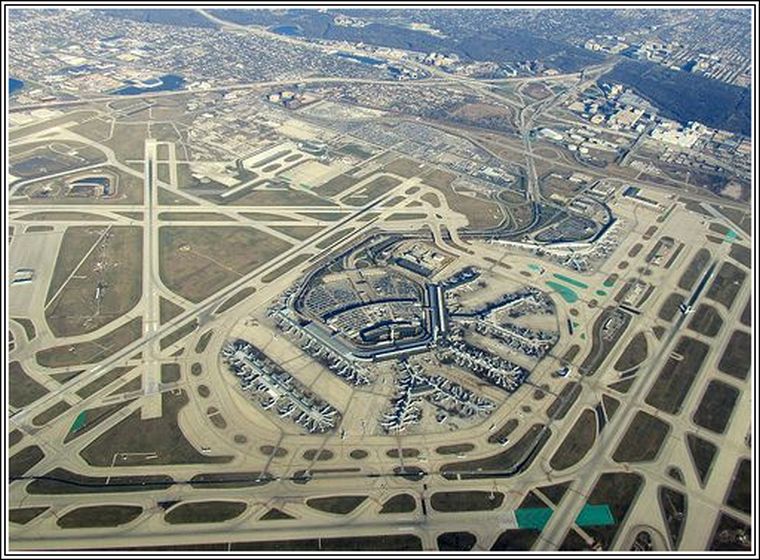
O'Hare was also honoured with Trazee Awards for "Favourite Airport Shopping," and "Favourite Airport Dining" for the second consecutive year. Midway International Airport is also a winner, bringing home the "Best Family-Friendly Domestic Airport" award by Global Traveller's family-friendly WhereverFamily's Wherever Awards.†
"On behalf of Mayor Lori E. Lightfoot, we are honoured that O'Hare and Midway International Airports were once again recognized by Global Traveller's readers," said CDA Commissioner Jamie L. Rhee. "At both O'Hare and Midway, we are improving the traveller experience everyday with world-class dining, shopping, passenger amenities and family-friendly facilities. We continue to make critical investments in the future of both airports."
Despite the substantial impact of the COVID-19 pandemic on the travel industry, Chicago's airports have remained resilient and the number of domestic destinations served from Chicago is now at the same level as it was pre-COVID. Chicago remains a key hub for 3 of the 4 largest U.S. carriers: United Airlines, American Airlines and Southwest Airlines. Two additional carriers have even been added - Allegiant at Midway and Southwest at O'Hare.
Recent developments at O'Hare International Airport include the near completion of the O'Hare Modernization Program (OMP) - the 16 year, $6 billion investment to reconfigure and modernize the airfield. The project has already reduced system impact delays by 64 percent. O'Hare 21 development continues with the extension of the Terminal 5 concourse and the design of upcoming additional terminals.
The Midway Modernization Program (MMP) is elevating the passenger experience at Midway International Airport. The new security screening checkpoint has doubled capacity and reduced congestion and the concession program has added new automated, low-touch options, including the new Hudson Nonstop using Amazon's Just Walk Out technology.
"Congratulations†to Chicago O'Hare International Airport and Midway International Airport for winning 'Favourite Airport' in The Trazees and taking a Wherever Award in the 2021 voting," said Francis X. Gallagher, publisher and CEO, FXExpress Publications, Inc. "These awards are for multiple years, which shows great stability. It is a testament to the fine service and concessions at both Chicago-area airports. I look forward to my next trip to the city, when I can once again experience the award-winning airports."
Global Traveller's Trazee Awards celebrate the best in the travel industry determined by travellers ages 25-40. Winners are named based on the results of an open-ended reader survey from an online ballot which runs on trazeetravel.com. Millennial travellers vote for their favourites in a range of categories, from airlines and airports to hotels and destinations.
A web-based publication written for modern traveling families. Global Traveller's whereverfamily.com delivers fresh content on a range of family travel topics, including cruising, destinations and important tips across all budgets and age groups, crafted by a network of family travel experts. WhereverFamily's Wherever Awards are named based on the results of an open-ended reader survey.

Airport Authority Hong Kong (AA) announced that close to 90% of its staff have already received the first dose of COVID-19 vaccination as of 1 August 2021. The AA has been introducing various initiatives to encourage vaccination among its staff as well as the entire airport community on the airport island.
Over 90% of the staff of the Aviation Security Company Limited have received the first dose of vaccine, while all frontline staff who receive arriving passengers at the Temporary Specimen Collection Centre operated by Department of Health (DH) at Hong Kong International Airport (HKIA) have been fully vaccinated. The AA will continue to work closely with its business partners to encourage members of the airport community to get vaccinated.
The AA has taken the lead in promoting vaccination in the airport community, including providing vaccination leave for airport staff. AA staff as well as staff of AA's contractors that provide airport services enjoy paid-leave for vaccination. Other than the lucky draw campaign launched to give away 10 000 air tickets to airport staff who receive COVID-19 vaccination, there are health talks and videos to provide relevant information on COVID-19 vaccination.
Since 1 August 2021, all airport staff entering the airport restricted area are required to present proof of full COVID-19 vaccination or valid negative COVID-19 test result. The implementation of the new requirement has been smooth.
In addition to vaccination, more tests have been conducted for airport staff. Over the past six weeks, ten rounds of compulsory test were completed for airport staff who were subject to the requirements stipulated in the government's compulsory testing notices. As announced by the government, regular testing for airport staff working at terminal and airport restricted area will also be conducted.
As an important gateway connecting Hong Kong and the world, HKIA has since the start of the pandemic adopted various effective measures to protect both passengers and airport staff against COVID-19. In view of the threat posed by the more infectious variants of the virus, in addition to the established preventive measures, the AA requires all local ground staff to avoid contact with air crew. Staff including ramp coordinators, cabin cleaning staff, engineers or mechanics who work in the cabin, as well as catering staff, are not allowed to go into the cabin if air crew are present. Staff are required to use communication tools to avoid contact, but if face-to-face interactions are unavoidable, they must also wear face shields in addition to face masks and maintain 1.5 metres distance from each other.
All escort services for air crew provided by passenger handling agents and local airline staff are banned.
Apart from segregation from air crew, cabin cleaning and catering staff are required to be segregated while they are in work-related areas such as offices and changing rooms. They must wear sufficient protective gear when working inside the cabin and be disinfected afterwards. Any waste, off-loaded items from the cabin and used protective gear must be properly managed.
A host of measures are also implemented to segregate arriving passengers from airport staff, which include segregating passengers and airport staff with separate channels and dining areas in the terminal.
Vivian Cheung, Executive Director, Airport Operations of the AA, said, "During the pandemic, the AA and its business partners have maintained normal operations under very challenging operating and business conditions, while complying with different measures on quarantine and infection control at the airport. I would like to extend my gratitude to all business partners and their staff who have been very supportive and spared no efforts on implementing various health and safety measures in order to safeguard the public health of the airport community and passengers at HKIA."
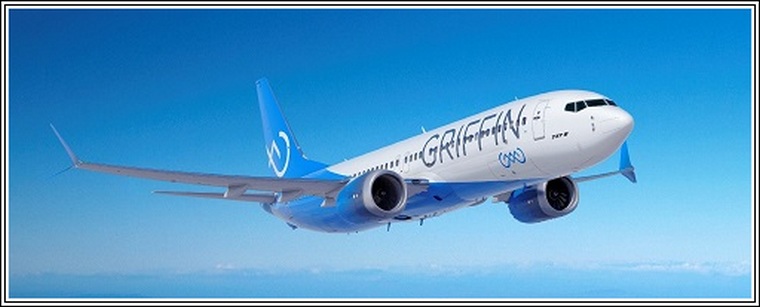
Boeing [NYSE:BA] and Griffin Global Asset Management have announced that the aircraft lessor is expanding its commercial aircraft portfolio with five new 737-8 jets. The purchase is Griffin's first direct order with Boeing as it sees strategic opportunities to place the airplanes during the market recovery.
"As market conditions rebound, we are finding opportunities to serve our airline customers in innovative ways. An important component of this strategy is providing balanced capacity that meets returning passenger demand. The 737-8 is well-positioned to support this objective, and this order lays a strong foundation for more to come with Boeing and Griffin on future opportunities," said Ryan McKenna, founder and CEO of Griffin.
Designed and built in Renton, Washington, the 737 MAX family delivers superior efficiency, flexibility and reliability while reducing fuel use and carbon emissions by at least 14% compared to the airplanes they replace. The 737-8 seats up to 189 passengers and can fly 3,550 nautical miles - about 600 miles farther than its predecessor - allowing airlines to offer new and more direct routes for passengers. Every 737 MAX features the new Boeing Sky Interior, highlighted by modern sculpted sidewalls and window reveals, LED lighting that enhances the sense of spaciousness and larger pivoting overhead storage bins.
"Griffin Global Asset Management is building a first-class aircraft leasing business and we are delighted that they have selected the 737-8 for their single-aisle portfolio. As Griffin places its first direct order with Boeing, we welcome them to the 737 family and look forward to working with the team in the future," said Ihssane Mounir, Boeing senior vice president of Commercial Sales and Marketing.
As a leading global aerospace company, Boeing develops, manufactures and services commercial airplanes, defence products and space systems for customers in more than 150 countries. As a top U.S. exporter, the company leverages the talents of a global supplier base to advance economic opportunity, sustainability and community impact.
PLEASE GO TO
www.youtube.com/channel/UCCuRVZAGodT6sztTeXBGeMw
and subscribe to our YouTube channel

 |
 |
 Copyright © 2024 Pilot's Post PTY Ltd
The information, views and opinions by the authors contributing to Pilotís Post are not necessarily those of the editor or other writers at Pilotís Post.
Copyright © 2024 Pilot's Post PTY Ltd
The information, views and opinions by the authors contributing to Pilotís Post are not necessarily those of the editor or other writers at Pilotís Post.